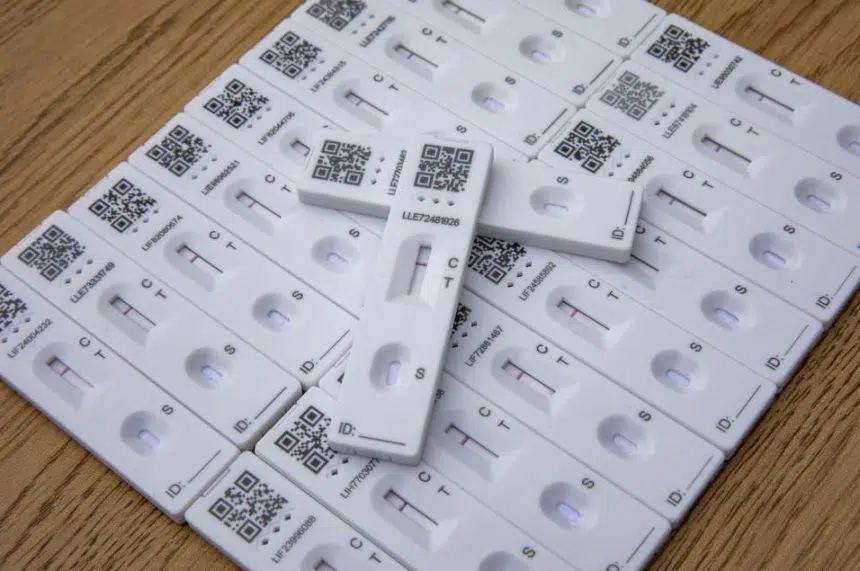Thousands more rapid antigen testing kits that allow people to screen for COVID-19 at home will be made available next week, according to provincial health officials.
During a technical briefing Friday, the Provincial Emergency Operations Centre (PEOC) said 750,000 testing kits will be distributed to schools across the province.
The tests will be for children under the age of 12 who are not yet eligible for vaccination, said Melissa Kimens, executive director of the COVID response unit at the Ministry of Health and incident commander of the PEOC.
So far, she said more than 500,000 kits have been sent around the province to chambers of commerce, hotels and fire halls, where they have been snatched up quickly.
“I understand that demand from the public has been quite brisk and some sites are running low. So, the list online does contain information about who still has tests available,” Kimens said.
Another 750,000 tests will be sent to the Saskatchewan Health Authority’s testing centres, she continued. A list of locations where the tests are available can be found at the government’s website.
The province says point-of-care rapid antigen self-tests should only be performed on those who are not showing COVID symptoms. Saskatchewan’s chief medical health officer says the PCR test remains the best option.
“Obviously, if you have symptoms, if you are part of an outbreak, if you’re a close contact or you’ve been otherwise directed by public health, you should go and get the regular PCR test,” said Dr. Saqib Shahab.
However, he said the point-of-care tests “do have a value” and give people peace of mind.
“For example, if they’re fully vaccinated but they were a close contact (and) they’re self-monitoring, it just provides extra reassurance,” Shahab said.
Shahab specified the United Kingdom has made heavy use of the tests.
“I know in other parts of the world, people before they’re visiting friends or relatives … even if they’re fully vaccinated, they may sometimes use a point-of-care test to make sure that they’re negative,” he said.
He said the rapid tests offer added protection in addition to mask-wearing, vaccination and testing.
“Using all these layers is going to continue to keep our numbers low,” Shahab said.







